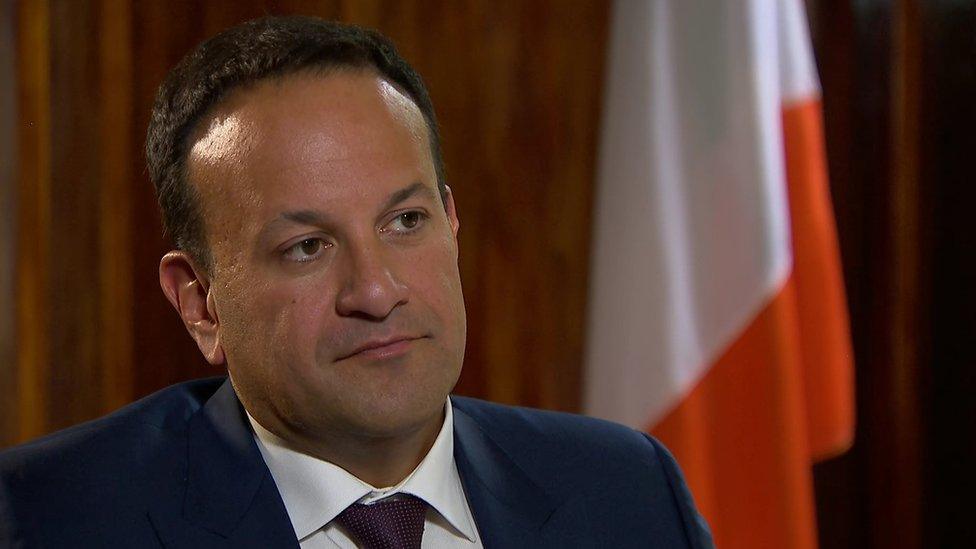Taoiseach Leo Varadkar's fractured relationship with unionism
- Published
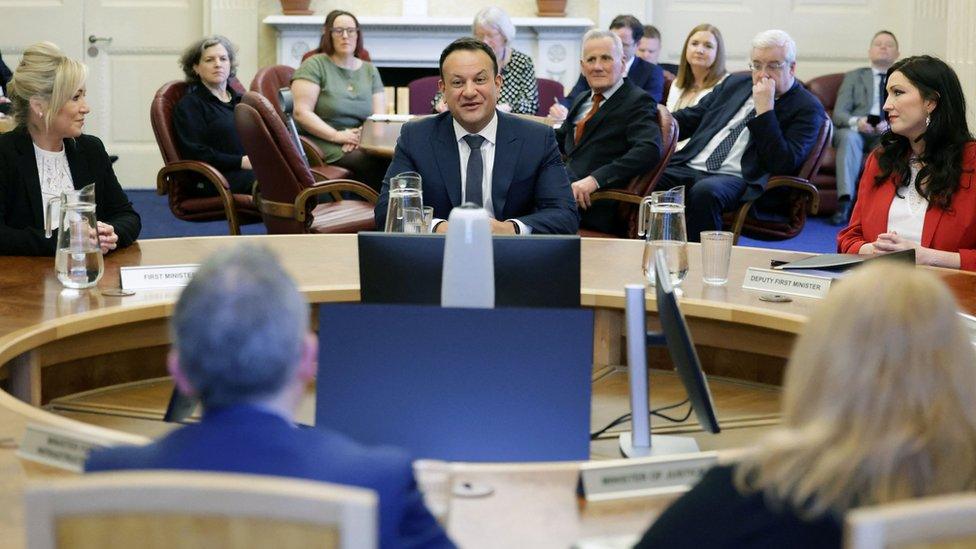
Leo Varadkar, First Minister Michelle O'Neill and Deputy First Minister Emma Little-Pengelly meet at Stormont Castle
Leo Varadkar once bristled when I suggested to him he was seen as "a unionist bogeyman."
But for most of his tenure that's the way it was.
The source of his fractured relationship with unionists was his decision to use a copy of the Irish Times featuring a front page interview with the daughter of a man killed in an IRA bombing at a customs centre, to warn EU leaders of the danger of a hard border on the island of Ireland.
He explained: "I just wanted to make sure that there was no sense in the room that in any way anyone in Ireland or in the Irish government was exaggerating the risk of a return to violence in Northern Ireland."
The DUP MP Sammy Wilson accused him of stirring up "false fears about barriers along the border" adding "his behaviour is despicable low and rotten".
The suspicion was, of course, the party was happy to have a convenient target at which to aim its post-Brexit ire but it came to define his relationship with northern unionists at least.
He later said he regretted the Northern Ireland Protocol had been "imposed on Northern Ireland without the support of both communities".
It was a move widely welcomed by the unionist parties though things soured again last year when the taoiseach spoke about the need for a "Plan B" if devolution could not be restored.
The fact he did so on the pitch at Linfield's Windsor Park stadium holding a Linfield shirt with his name on the back only seemed to add to the fury.
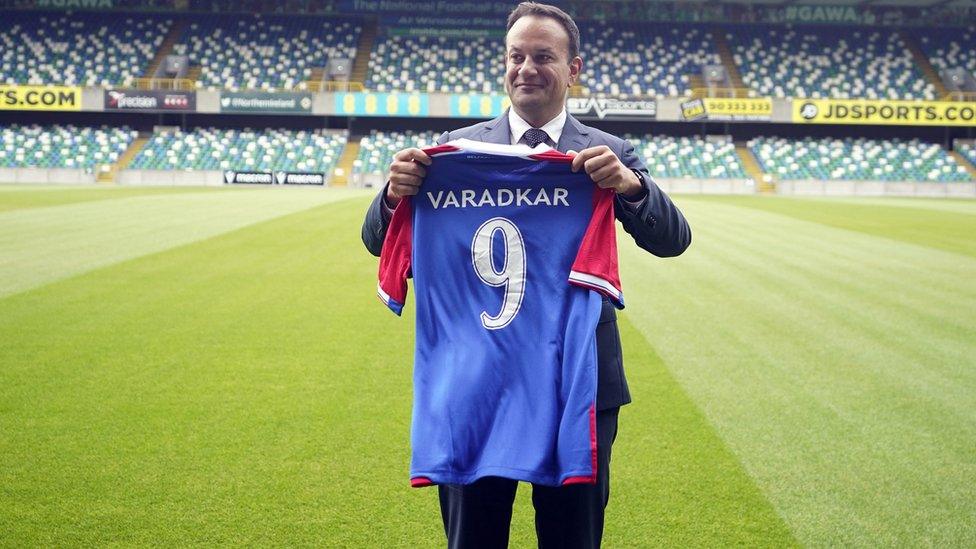
Leo Varadkar received a personalised Linfield jersey during his visit to Windsor Park
The DUP leader Sir Jeffrey Donaldson said the remarks had "not been helpful" comments echoed by the Secretary of State Chris Heaton-Harris.
The visit to Linfield followed one he had made earlier to the headquarters of the Orange Order.
On his frequent visits north, Mr Varadkar had always insisted on visiting both main communities.
Perhaps not surprisingly his relations with Sinn Fein were, if anything worse, after all they were direct competitors in the Republic.
Just this weekend he warned that a Sinn Fein-led government south of the border would pose "a very high risk", adding the party's powers were limited at Stormont.
To the end he remained one of the party's fiercest critics constantly rejecting the idea of going into government with the party.
From now on that will be an issue for someone else.
Related topics
- Published11 August 2023
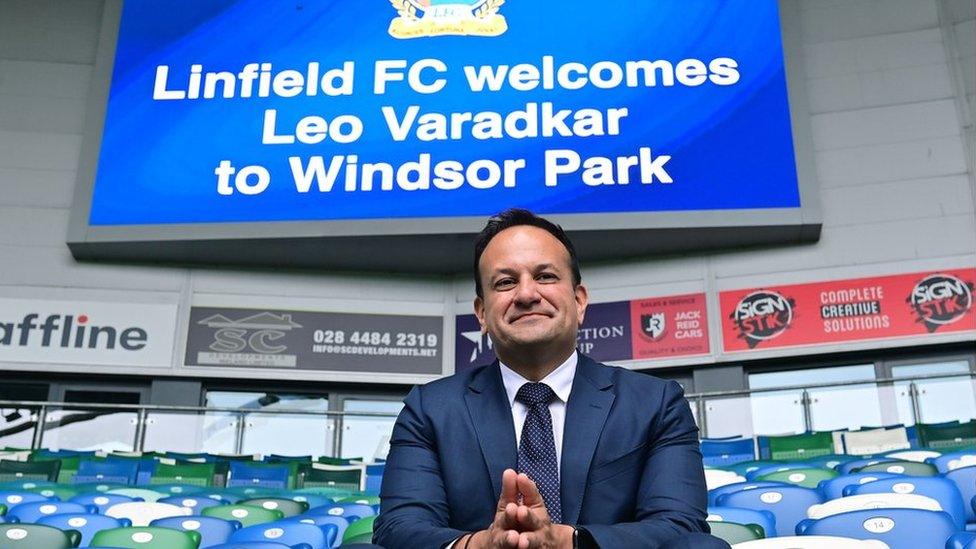
- Published8 June 2018
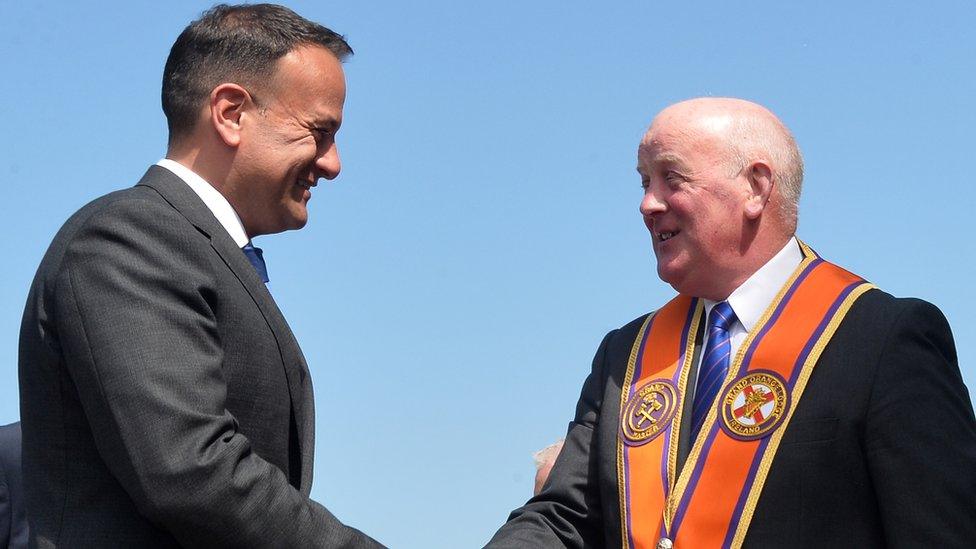
- Published9 August 2023
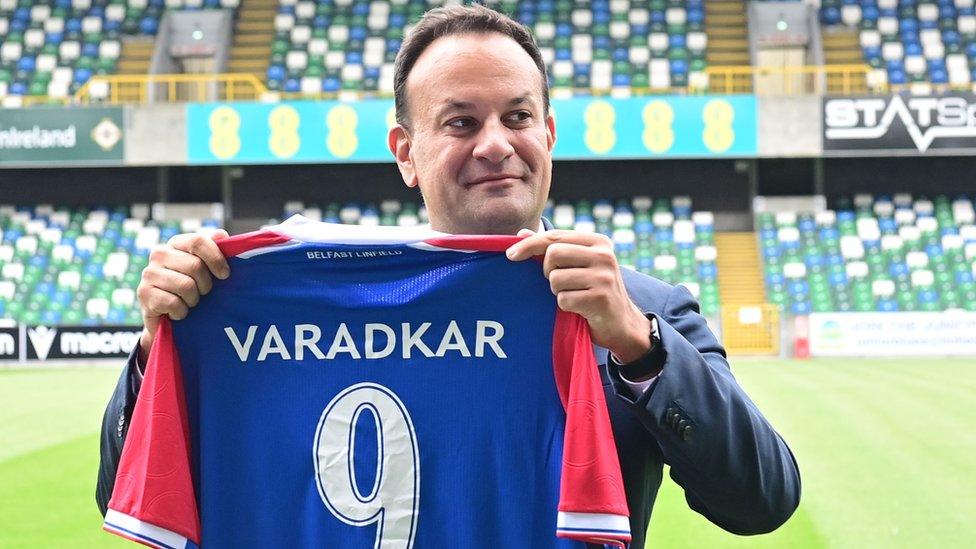
- Published23 December 2022
